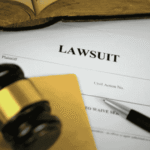In today’s litigious society, protecting your hard-earned assets from lawsuits is more critical than ever. Whether you’re a business owner, investor, or high-net-worth individual, a single lawsuit can jeopardize your financial stability. Fortunately, there are legal and strategic ways to safeguard your wealth.
This comprehensive guide will explore key strategies, including asset protection trusts, LLCs, insurance, and legal best practices—all while ensuring compliance with the law. By the end, you’ll understand how to shield your assets effectively.
In today’s litigious society, protecting your hard-earned assets from lawsuits is more critical than ever. Whether you’re a business owner, investor, or high-net-worth individual, a single lawsuit can jeopardize your financial stability. Fortunately, there are legal and strategic ways to safeguard your wealth.
This comprehensive guide will explore key strategies, including asset protection trusts, LLCs, insurance, and legal best practices—all while ensuring compliance with the law. By the end, you’ll understand how to shield your assets effectively.
Why Asset Protection Matters
Lawsuits can arise from various situations:
-
Business disputes (contract breaches, partnership conflicts)
-
Personal liability (auto accidents, defamation claims)
-
Professional malpractice (medical, legal, or financial errors)
-
Debt collection (creditors seeking repayment)
Without proper protection, your personal and business assets—such as real estate, bank accounts, and investments—could be seized. Proactive planning is essential to minimize risk.
Key Strategies to Protect Your Assets
1. Establish an LLC or Corporation
One of the simplest ways to separate personal and business liabilities is by forming a Limited Liability Company (LLC) or corporation.
-
LLCs provide flexibility and pass-through taxation while shielding personal assets.
-
Corporations (S-Corp or C-Corp) offer stronger liability protection but come with more regulations.
Best Practice: Keep business and personal finances strictly separate to avoid “piercing the corporate veil.”
2. Use Asset Protection Trusts
An Asset Protection Trust (APT) is a legal entity that holds your assets, making them harder for creditors to access.
-
Domestic APTs (available in states like Nevada and Delaware)
-
Offshore APTs (in jurisdictions like the Cook Islands or Nevis)
Note: These trusts must be established before any legal threats arise to avoid fraudulent transfer claims.
3. Maximize Insurance Coverage
Insurance acts as the first line of defense against lawsuits:
-
General Liability Insurance (covers accidents, injuries)
-
Umbrella Policies (extra coverage beyond standard limits)
-
Professional Liability Insurance (for malpractice claims)
Tip: Regularly review and update policies to match your asset value.
4. Homestead Exemptions
Many states offer homestead exemptions, protecting a portion of your primary residence’s equity from creditors.
-
Florida and Texas provide unlimited homestead protection.
-
Other states have varying exemption limits.
5. Retirement Account Protections
Under federal law (ERISA), 401(k)s and pensions are typically safe from creditors.
-
IRAs have limited protection (up to $1.5 million in bankruptcy).
-
State laws may offer additional safeguards.
6. Titling Assets Strategically
How you hold property impacts vulnerability:
-
Tenancy by the Entirety (TBE) – Protects jointly owned property in some states.
-
Family Limited Partnerships (FLPs) – Helps transfer wealth while retaining control.
7. Avoid Fraudulent Transfers
Transferring assets after a lawsuit is filed can be deemed fraudulent. Courts may reverse such transfers, so plan ahead.
Common Mistakes to Avoid
-
Mixing Personal & Business Funds – Weakens liability protection.
-
Underinsuring Assets – Leaves gaps in coverage.
-
Delaying Estate Planning – Increases exposure to creditors.
-
Ignoring State Laws – Protections vary by jurisdiction.
Legal Considerations & Compliance
Asset protection must be done legally and ethically. Courts can reverse fraudulent transfers, so:
-
Plan early – Before any legal threats emerge.
-
Work with experts – Consult asset protection attorneys and financial advisors.
-
Stay compliant – Follow tax and reporting requirements.
Final Thoughts
In today’s litigious society, protecting your hard-earned assets from lawsuits is more critical than ever. Whether you’re a business owner, investor, or high-net-worth individual, a single lawsuit can jeopardize your financial stability. Fortunately, there are legal and strategic ways to safeguard your wealth.
This comprehensive guide will explore key strategies, including asset protection trusts, LLCs, insurance, and legal best practices—all while ensuring compliance with the law. By the end, you’ll understand how to shield your assets effectively.
Protecting your assets from lawsuits requires a proactive, multi-layered approach. By leveraging LLCs, trusts, insurance, and legal exemptions, you can significantly reduce financial risks.
Remember, the best time to plan is before a lawsuit happens. Consult professionals to tailor a strategy that fits your unique situation.
For expert guidance on asset protection, trust Proog to help secure your financial future.
- How to the Protect Your Assets from Lawsuits: A Complete Guide
- Protecting your assets from lawsuits requires a proactive, multi-layered approach. By leveraging LLCs, trusts, insurance, and legal exemptions,
- Law
Related posts:
 7 Luminous Advocates in Lahore Secrets from Top Lawyers in Pakistan Advocates in Lahore Secrets from Top Lawyers in Pakistan
7 Luminous Advocates in Lahore Secrets from Top Lawyers in Pakistan Advocates in Lahore Secrets from Top Lawyers in Pakistan
 Navigating Legal Challenges: How Legably Connects You with the Right Attorney
Navigating Legal Challenges: How Legably Connects You with the Right Attorney
 Navigating Legal Challenges: How Legably Connects You with the Right Attorney
Navigating Legal Challenges: How Legably Connects You with the Right Attorney
 Finding the Right Family Lawyer in Orlando: What You Need to Know
Finding the Right Family Lawyer in Orlando: What You Need to Know
 How Deportation Affects Future Immigration Petitions in Australia?
How Deportation Affects Future Immigration Petitions in Australia?
 DUI Arrest? How Bail Bond Services Help Speed Up the Release
DUI Arrest? How Bail Bond Services Help Speed Up the Release
 Know Your Rights When a Company Overcharges You: A Comprehensive Guide
Know Your Rights When a Company Overcharges You: A Comprehensive Guide
 How to File a Complaint Against a Bank (And Win) – A complete Guide
How to File a Complaint Against a Bank (And Win) – A complete Guide







